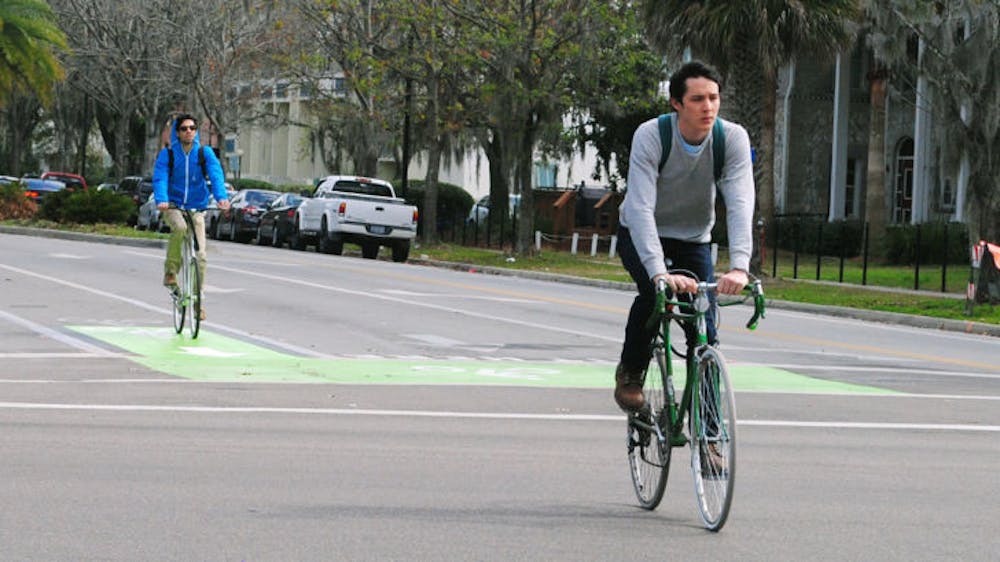In what some consider the most dangerous state for bicycling in the country, Gainesville has been ranked the most bicycle-friendly city in Florida.
The city ranked No. 29 out of 50 in an article published by bicycling.com on Sep. 19.
The website runs the survey every two years, taking into account their infrastructure, census data and activism.
In Florida, Gainesville topped Tallahassee (No. 38), Miami (No. 40) and Tampa (No. 45). The city jumped 37 spots from its position two years ago.
Ian Dille, who conducted the survey, said Gainesville’s nationwide ranking is impressive, considering Florida’s lack of bicycle-minded infrastructure.
In Florida, “where there are bike lanes, they’re generally very narrow,” Dille said. “It’s a very driver-oriented culture in which people driving cars aren’t looking out for people using other means of transportation.”
The primary factor Dille looks at is the U.S. Census Bureau data that calculates the number of bike commuters in each city.
Dille said he also does interviews with bicycle-advocate groups in each city and gauges the progress these groups have made in regards to improving bicycling conditions.
Chris Furlow, president of Gainesville Citizen and Active Transportation, said the high ranking comes during a time when the city and Alachua County has added bicycle lanes and is making plans for future additions.
Moreover, in August, Furlow said, the city expanded its bicycle-sharing program, doubling the amount of stations from two to four.
In a city whose population is heavily made up of university students, he said UF has made major inroads to help students who may not have cars.
“UF in particular has done a lot to make biking to campus easier and safer by adding bike lanes and multi-use paths on campus,” he said in an email.
When Jake Rheingold, 21, rides his bicycle to classes, he said he feels UF’s commitment to safety is apparent, citing what he described as bicycle lanes all over and motorists watching for bicyclists sharing the road.
“In some other cities and college towns, conditions may not be as favorable,” the UF engineering senior said.





